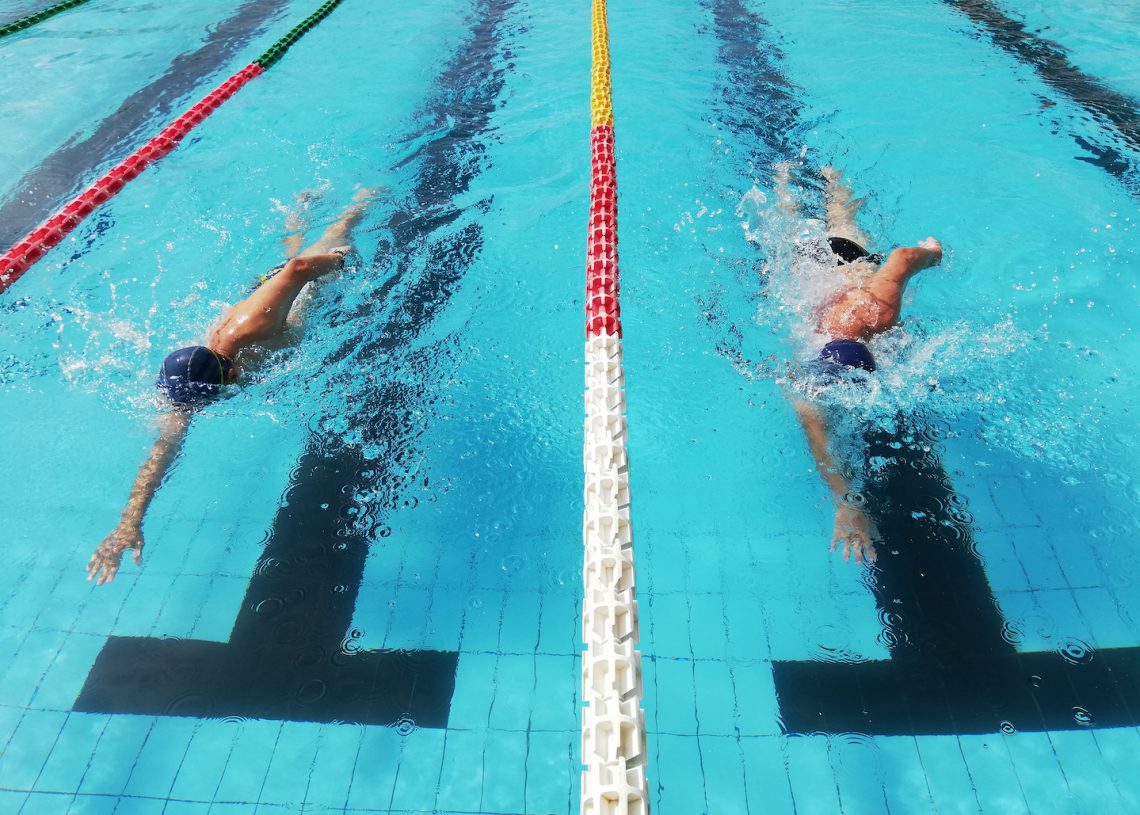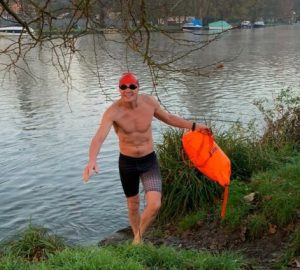
How do I feel less ‘heavy’ in the water?
Swimming coach Cassie Patten answers a reader question about heaviness in the water, and improving stamina for an upcoming swimming event
“A little bit of background about me – I am in my mid-50s, a keen runner (I ran over 1,000 miles in 2022) and I love mixed martial arts. I have started swimming completely from scratch last year. I had some swimming lessons at the local swimming pool and have progressed to swimming very slowly with a triathlon group. I love swimming and I have entered a 1.6K swim event this year. However, I have a few things that are holding me back – any advice would be gratefully received!
My issues are:
- I feel that my body is too heavy to swim. My legs sink continuously no matter what I try and do to them, kicking them makes me incredibly out of breath and I can feel them dragging me down when I’m swimming.
- I am incredibly competitive, so my swimming teacher tells me to relax and to try and swim steady. However, when I am in the pool if I see anybody swimming next to me I automatically try and race them, which ends up with me fighting the water and feeling like I’m going to have a heart attack when I get to the end of the pool!
- 1.6K is a long way. At the moment, I can only swim 100m without stopping before I have completely lost my breath.
Please help me! I want to become a swan, but I currently feel like I brick sinking slowly to the bottom.
Liam Smeeton, Frustrated Swimmer
There is a lot for me to unpick here so let’s take it point by point.
Firstly, I want to congratulate you for stepping up and learning to swim as an adult. I genuinely mean this. As adults we tend to stick to what we already know and are at times reluctant to step outside our comfort zone and learn a new skill.
Hats off to you for starting your swimming journey and I really hope that a couple of the top tips I give you will help you continue on this positive to trajectory.
Although swimming is a fantastic sport, it can be frustrating when you are looking to learn and change technique as there are lots of different elements happening at the same time.
Straighter legs
Let’s focus on your legs to start with: sinking legs are common and can add a lot of drag resistance when swimming.
When you kick try to focus on kicking ‘up’ from the hips, keeping your legs in a straighter position and not down from a very bent knee. Although this can feel odd, it can help with ensuring the biomechanics of the kick is allowing your legs to stay higher in the water.
Also, if you lift your head when you take a breath it can shift your centre of buoyancy lower down your body, making your legs sink as a consequence. To assist in countering this, when you turn your head to take a breath, rest your cheek on the water like you would do to a pillow – thus ensuring your ear stays in the water.
Exhale under water
Finally, on your ‘sinky’ legs, make sure you’re breathing out under the water and not holding your breath. If you can imagine when your lungs are full of air, they are like two large, inflated footballs sitting high in the water, again making your hips and legs sink low in the water. Exhaling under water sounds obvious, but you would be amazed by how many people hold their breath between inhalations then blow out and inhale in quick succession.
By focusing on this it will also help your ability to swim for longer distances without feeling so out of breath, which will make swimming 1.6K more manageable.
Relax in the water
Let’s look at question two. I can tell from your running and passion for mixed martial arts that you are a fit and competitive person, so now we need to channel that into meeting your goals for this year.
I agree with your swimming teacher that you need to relax in the water; the more you are unnecessarily tense in the water, the heavier you will feel and the harder you will find swimming.
I liken it to doing a static wall squat; you do not go anywhere but it is hard and you tire quickly. If you can switch off from racing everyone else in the pool and only focus on the technical points your coach has given you, you will find that you will improve at a quicker rate then if you are always racing and over exerting yourself.
One of my favourite sayings is that if you fight the water, you will always loose. Try to move the water with control, not aggression.
Make a training plan
Finally, have you considered getting a training plan to help you with reaching your goal? It is difficult to know what to do when you start off training for an event. Ask your swimming teacher or coach at your tri club for some tips on increasing your swimming distance. If you wanted some more information on this, on the WaveCrest swimming website there is a section on how to plan a training session.
I hope these elements help you reach you goals this year, keep it up – you’re doing great!
This article is from the February issue of Outdoor Swimmer. Click here to subscribe to the magazine.
Browse our training articles for more swimming advice.
To see all the online content from the February 2023 issue of Outdoor Swimmer, visit the 'Challenge' page.







